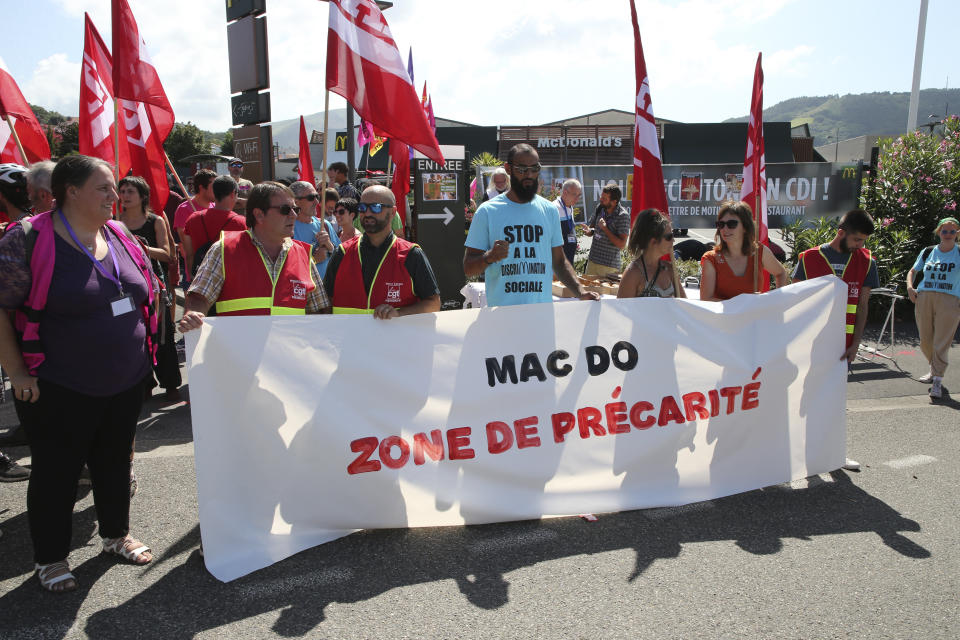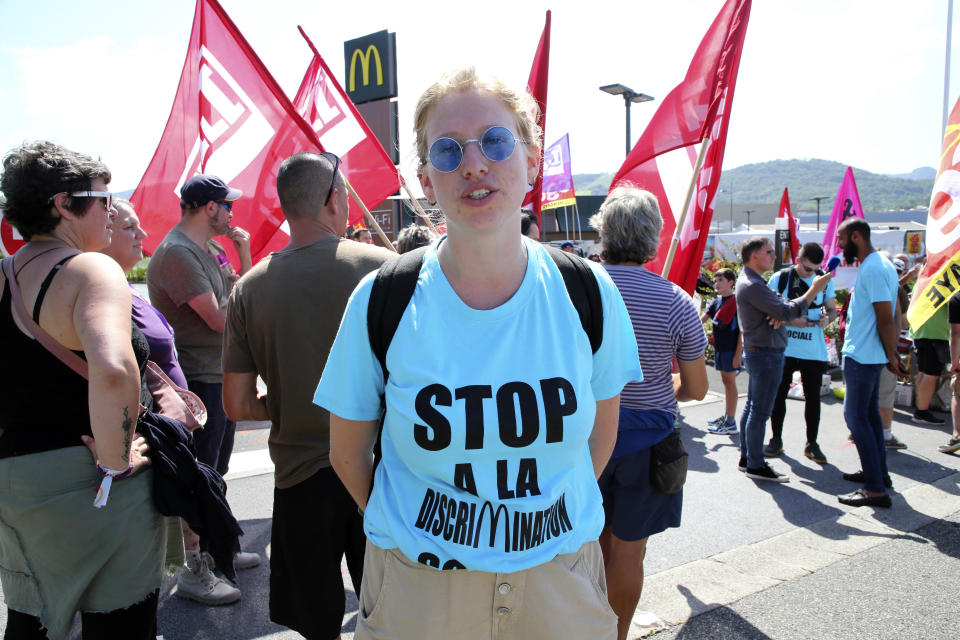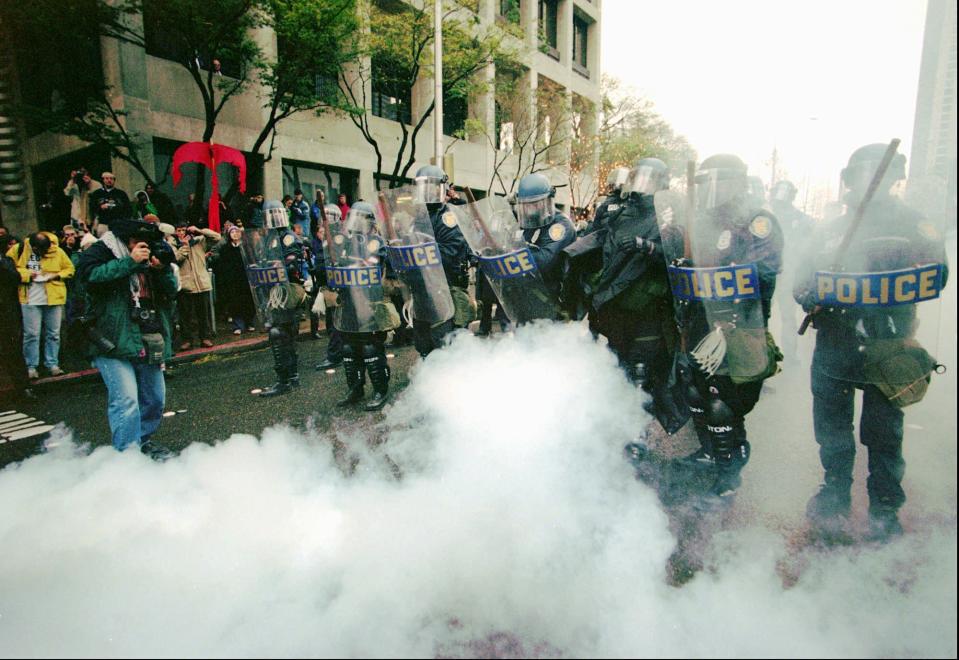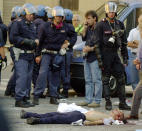Protesters skeptical as G7 claims anti-globalization mantle
PARIS (AP) — The G-7 summit has for the first time co-opted the message of its protesters: Capitalism has led to damaging inequalities and environmental degradation that has harmed the global economy and a handful of rich countries can't be the only ones making decisions for the world.
Thousands of people camped outside the French coastal resort of Biarritz for G-7 protests are, to say the least, a little skeptical of the new messengers and their motives.
Ever since the 1999 World Trade Organization summit left Seattle a smoky battleground between police and demonstrators, protesters at international summits have used a range of tactics — from rhetorical to anarchical — to fight global capitalism.
"Everything that we said back then came true," said Medea Benjamin, an activist and founder of CodePink, who seized the WTO stage in 1999 before that summit fell apart over trade disagreements.
More than 13,000 police are protecting this year's gathering, which is hosted by French President Emmanuel Macron, a former banker, and will include U.S. President Donald Trump and other Group of Seven leaders. France's interior minister specifically cited the 1999 "Battle of Seattle" as the model to be avoided at all costs.
"The first threat is, as we know, the risk of outbreaks (of violence) ... Violent individuals, not to be confused with peaceful protesters, try at each international summit to provoke riots and to hinder the smooth functioning of the meetings," Interior Minister Christophe Castaner said this week. He cited protests in Prague in 2000; Genoa, Italy, in 2001, Rostock, Germany, in 2007; and London in 2009.
What has changed is that the message of the 1999 protest is also the message of the summit itself, "that the fruits of globalization are not being equally distributed," said Tristen Naylor, deputy director of the G20 Research Group. "We find ourselves in this really peculiar moment where the grievances of those inside the summit room and those outside the security fence are aligned."
For the men and women pitching tents in an overgrown field well outside the glitzy center of Biarritz, that alignment is a mirage.
"I am here to support the alternative, people who want to offer something different to the capitalistic world we live in," said Laura Ochoa, a 31-year-old French teacher from Spain. "The G-7 is the exact opposite of what I believe."
On Thursday, they staged a protest outside a McDonald's, holding aloft a white banner describing the global fast-food chain as a "social insecurity zone."
Benjamin, who has more than two decades of experience as a protester, will not be at this year's gathering in Biarritz. But she does not believe that the people inside the G-7 negotiating rooms are the ones to solve the world's problems, since she believes they themselves created many of the challenges the world now faces.
"The streets are rising up against the very people in power who have continued to allow this to happen and are not going to be fooled by their nice words," she said.
"I don't think that Macron would have even, or Trump, or any of them, would have even had this as a focus were it not for popular pressure. But I don't think they are at all ready to hear the radical solutions that those of us on the outside want to see," she added.






















